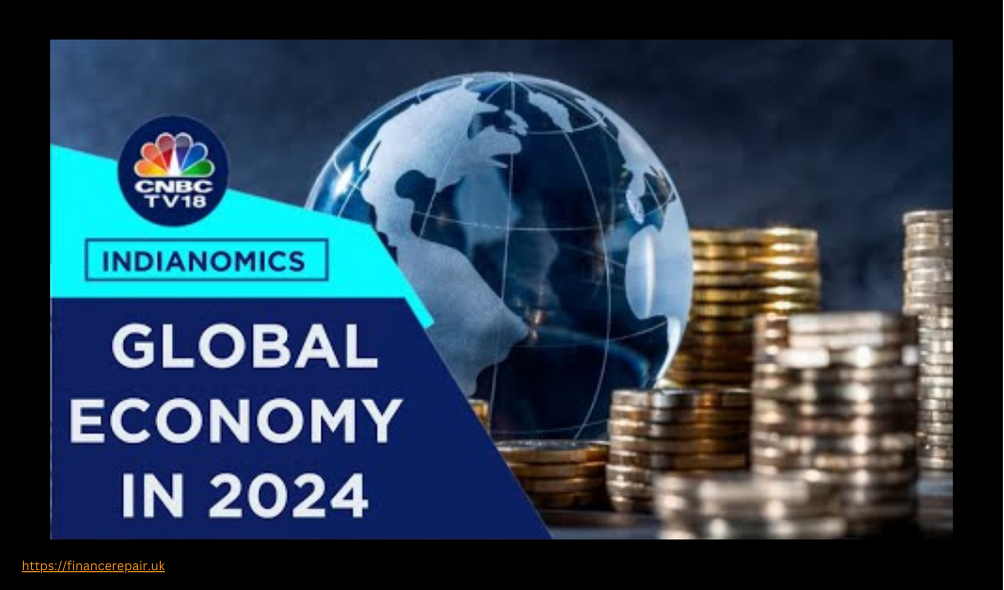
Introduction to International Economic News
International economic news plays a crucial role in shaping the dynamics of global markets. It refers to the dissemination of information regarding economic events, policies, and performance indicators that occur across nations. These developments can significantly influence market sentiments, investor decisions, and ultimately, economic stability worldwide. As economies are increasingly interconnected, understanding international economic news becomes essential for both policymakers and investors, as it enables them to navigate the complexities of the global financial system.
Various economic indicators, such as gross domestic product (GDP), inflation rates, unemployment statistics, and trade balances, serve as benchmarks for assessing the health of economies. Furthermore, policy changes, including monetary policy shifts or fiscal stimulus measures, can drastically alter market conditions. The reactions to these indicators and policies often manifest in capital flows, stock price fluctuations, and currency valuation changes, underscoring the importance of timely and accurate international economic news. Moreover, geopolitical events, such as trade agreements, conflicts, or international summits, can further complicate the global economic landscape, leading to widespread ramifications across financial markets.
강남가라오케 Recent major events have underscored the intricate interplay between international economic news and global markets. For instance, developments surrounding trade negotiations between major economies or shifts in central bank policies have significantly impacted investor sentiment and market performance. Additionally, the ongoing repercussions of the COVID-19 pandemic have created volatility in various sectors, with economic recovery being uneven across different regions. These dynamics highlight the necessity for investors and analysts to stay informed about international economic developments, as understanding these factors is vital for making informed financial decisions. By keeping abreast of this news, market participants can better position themselves in reaction to the emerging global economic trends.Key Economic Indicators to Watch
Understanding key economic indicators is essential for evaluating the health of economies and their effect on global markets. A few significant indicators that investors and analysts closely monitor include Gross Domestic Product (GDP), unemployment rates, inflation rates, and trade balances. These metrics serve as invaluable benchmarks, offering insights into overall economic performance and potential future trends.
Gross Domestic Product (GDP) measures the total value of goods and services produced within a country during a specific period. It serves as a comprehensive indicator of economic activity, reflecting both growth and contraction. A rise in GDP often signifies a healthy economy, encouraging investment; conversely, a decline can lead to negative sentiment among investors. Observing trends in GDP growth can provide insights into potential market movements.
Unemployment rates are another critical indicator that reflects the labor market’s health. High unemployment rates may signal economic distress, leading to decreased consumer spending and reduced corporate profits. Meanwhile, lower rates typically indicate a robust job market, boosting consumer confidence. Changes in unemployment can influence investor sentiment and subsequently affect market trends.
강남하이퍼블릭 Inflation rates measure the rate at which prices for goods and services rise, impacting purchasing power. Moderate inflation is generally viewed as a sign of economic growth, yet excessively high inflation can erode consumer confidence and stifle investment. Central banks closely monitor these rates to adjust monetary policy, and their actions tend to have immediate repercussions in the financial markets.Lastly, trade balances, representing the difference between exports and imports, provide insights into a country’s economic strength in the global market. A positive trade balance indicates that a nation is exporting more than it is importing, which can lead to currency appreciation and boost investor confidence. Conversely, a trade deficit might suggest potential economic challenges. By analyzing these key economic indicators, investors can make informed decisions that influence portfolio strategies and market forecasts.
Recent Geopolitical Events and their Economic Implications
In recent months, several geopolitical events have significantly impacted global markets, shaping not only international trade relationships but also investment patterns and economic stability across various regions. The rising tension between major economies has prompted responses that reverberate throughout the financial landscape. Trade wars, which have become a common feature of international relations, lead to the imposition of tariffs and other trade barriers, resulting in a decline in cross-border commerce. Such disruptions create uncertainty, affecting business investment plans and consumer confidence globally.
Sanctions imposed by one nation upon another represent another critical event influencing market dynamics. Sanctions can restrict economic activities and limit access to essential resources, leading to economic isolation for the targeted nation. The impact of these sanctions is often felt beyond the immediate parties involved, as they can disrupt supply chains and alter market prices for commodities and currencies. Consequently, economies that rely on exports or imports from sanctioned countries may experience shifts in their own economic stability and growth rates.
Diplomatic agreements, on the other hand, can lead to enhanced cooperation between countries and a more stable economic environment. For instance, newly brokered trade agreements may pave the way for increased trade and investment, fostering economic growth and generating positive sentiment in the markets. Such developments may enhance investor confidence and encourage the flow of capital across borders, further influencing global market performance.
Overall, the intricate relationship between geopolitical events and the global economy underscores the importance of remaining vigilant in monitoring these occurrences. As nations continue to navigate complex international relationships, the implications for economic stability and market performance are likely to persist, warranting close attention from businesses and investors alike.
Central Bank Policies and Their Global Impact
Central banks play a vital role in shaping the economic landscape, particularly through their monetary policies. These policies, which encompass interest rate adjustments and quantitative easing, have profound effects on financial markets worldwide. A central bank’s decision to alter interest rates can influence borrowing costs, consumer spending, and investment, thus affecting overall economic growth and stability. Recent actions by key central banks such as the Federal Reserve and the European Central Bank (ECB) illustrate this nuance in international economic dynamics.
For instance, in response to rising inflation rates, the Federal Reserve has implemented a series of interest rate hikes aimed at curbing excessive spending and stabilizing prices. These measures not only affect the U.S. economy but also reverberate through global markets, as currency valuation and capital flows respond to the changing American financial landscape. When the Federal Reserve raises rates, the dollar often strengthens, potentially leading to capital outflows from emerging markets that may be burdened by higher borrowing costs.
Similarly, the ECB’s approach to monetary policy has significant implications for the Eurozone and beyond. In recent months, as inflation pressures have mounted, the ECB has signaled intentions to tighten its monetary policy. The implications of these decisions extend to asset prices, exchange rates, and investment strategies internationally. Investors often react swiftly to any announcements or indications of policy shifts from central banks, adjusting portfolios based on anticipated future economic conditions.
The interconnectedness of global markets means that events in one region can trigger reactions in another. Consequently, the actions of central banks not only influence domestic economic indicators but also shape international trade relationships and financial stability. Understanding these dynamics is critical for investors and policymakers alike, as they navigate the complexities brought forth by evolving central bank strategies.
Sector-Specific Responses to Economic News
The global economy is characterized by a complex interplay of various sectors, each responding uniquely to international economic news. Recent events such as shifts in trade policies, changes in interest rates, and fluctuations in commodity prices have distinctly influenced sector performance. The technology sector, for instance, tends to react swiftly to news surrounding innovation and consumer demand. In the wake of announcements regarding new software regulations or major advancements in artificial intelligence, technology stocks often experience significant volatility. For example, the introduction of stricter data protection laws in Europe created immediate repercussions on stock prices of companies heavily invested in data management and analytics.
Similarly, the energy sector is directly affected by geopolitical developments and economic data related to oil production and consumption. Recent reports indicating a reduction in oil reserves or an increase in demand from emerging markets can drive oil prices upward. The surge in prices primarily influences energy companies’ stock performance, as evidenced by the recent rise in the market capitalizations of major oil corporations following reports of increased global demand. Furthermore, energy sector responses are compounded by environmental regulations and renewable energy investments, which further influence investor sentiment.
The finance sector exhibits its own set of reactions to international economic news, particularly changes in fiscal and monetary policy. Central banks’ decisions on interest rates are pivotal; a decrease can enhance bank profitability by increasing loan demand. For instance, the recent cut in interest rates by several central banks in response to economic downturns led to an uptick in banking stocks, as investors anticipated a surge in lending activity. Additionally, financial market stability is often disrupted by unforeseen external shocks, such as geopolitical conflicts or economic crises, affecting investor trust and credit markets.
Emerging Markets: Opportunities and Risks
Emerging markets have long been viewed as significant arenas for investment, presenting unique opportunities as well as inherent risks. Recent international economic news has highlighted the dynamics within these markets, particularly concerning growth prospects influenced by geopolitical shifts and global economic trends. Investors are drawn to emerging markets for their potential higher returns compared to developed markets, driven by rapid industrialization, urbanization, and demographic shifts.
One notable trend is the increasing interest in digital transformation within these regions. The proliferation of technology and internet access has opened avenues for new business models, enabling innovation in sectors such as finance, healthcare, and e-commerce. Countries with a younger population are particularly well-positioned to leverage these advancements, offering a fertile ground for startups and investment opportunities. Additionally, natural resources and commodities continue to play a crucial role in many emerging economies, attracting foreign direct investment targeting sectors like energy, mining, and agriculture.
However, potential investors must navigate the risks associated with investing in emerging markets. Currency fluctuations often present significant challenges, as altering exchange rates can dramatically impact returns. Political instability and economic policy shifts can also create an unpredictable investment landscape, adding layers of complexity and potential setbacks. Moreover, external factors such as changes in global interest rates or economic slowdowns in developed markets can reverberate across emerging economies, prompting caution among investors.
In light of these considerations, a balanced approach is essential. Diversifying investments across various sectors and regions can mitigate risks while capitalizing on growth opportunities. As global economic dynamics continue to evolve, staying informed on emerging market trends will be crucial for strategic investment decisions. Ultimately, while challenges exist, the potential rewards in these markets remain compelling for investors prepared to undertake comprehensive research and risk management.
The Role of Global Supply Chains
Global supply chains are integral to the functioning of international markets, facilitating the movement of goods and services across borders. These supply chains involve a complex network of suppliers, manufacturers, and distributors, providing companies with the ability to access resources and serve customers in different regions. Recent international economic news has drawn attention to the vulnerabilities inherent in these systems, particularly highlighted during the COVID-19 pandemic, which exposed critical weaknesses in logistics and delivery processes.
As the pandemic progressed, various sectors experienced significant disruptions, revealing how interconnectedness could result in widespread complications. For instance, delays in manufacturing and shipment originating from one region could lead to stock shortages globally, impacting production timelines and market availability. This situation has compelled organizations to reassess their supply chain strategies, prompting them to seek alternatives to mitigate future risks. Companies are increasingly considering regionalization, where sourcing and production are localized to minimize reliance on far-flung suppliers, thereby enhancing resilience.
Moreover, technological advancements are playing a critical role in redefining global supply chains. The incorporation of automation, artificial intelligence, and data analytics is enabling businesses to enhance their transparency and responsiveness. With improved real-time tracking capabilities, companies can gain insights into potential disruptions, allowing them to make informed decisions swiftly. Furthermore, the impact of geopolitical tensions has necessitated a more strategic approach to sourcing and distribution. Firms are diversifying suppliers and exploring new markets to reduce dependency on a single country or region, resulting in a more robust supply chain network.
In summary, the ongoing evolution of global supply chains, shaped by recent international economic developments, emphasizes the necessity for adaptability and strategic planning. Companies must remain vigilant in navigating these challenges, ensuring that their supply chain frameworks are resilient in the face of future uncertainties.
Investment Strategies in a Volatile Economic Landscape
In today’s global economy, characterized by rapid fluctuations and uncertainties, investors must adopt effective strategies to safeguard their assets and capitalize on emerging opportunities. One of the foundational strategies for navigating a volatile economic landscape is diversification. By spreading investments across various asset classes, sectors, and geographic regions, investors can reduce the risk associated with any single investment. This approach minimizes the impact of negative developments in one area and allows for potential gains in others, creating a more resilient portfolio.
Another key consideration during periods of economic instability is the incorporation of safe-haven assets into an investment portfolio. These assets, such as gold, U.S. Treasury bonds, and certain currencies like the Swiss franc, tend to retain their value or appreciate during market downturns. By allocating a portion of an investment portfolio to these safe-haven assets, investors may mitigate risks posed by volatility. The appeal of these assets stems from their historical performance during economic crises, making them a prudent choice for cautious investors looking to preserve capital.
Additionally, the choice between long-term and short-term investment approaches is crucial in a fluctuating environment. Long-term investors typically adopt a buy-and-hold strategy, capitalizing on the growth potential of quality assets over time. This approach allows them to ride out short-term market fluctuations and benefit from overall economic recovery. Conversely, short-term investors may focus on tactical trading strategies, taking advantage of market anomalies and news events to make quick profits. Both strategies can be effective, but investors should align their approach with their risk tolerance and financial goals.
Overall, by implementing these investment strategies—diversification, safe-haven asset allocation, and tailored approaches for long-term versus short-term investments—investors can effectively navigate the complexities of a volatile economic landscape shaped by recent international economic news.
Conclusion: Navigating the Future of International Economics
As we reflect on recent international economic developments, it is evident that global markets are in a state of constant flux. Various factors, including geopolitical tensions, monetary policy shifts, and trade agreements, significantly influence market dynamics and affect investment strategies. Understanding these influences is vital for maintaining a competitive edge in today’s interconnected economy.
One of the key points discussed highlights the need for stakeholders to remain vigilant and responsive to economic news. Timely access to information allows investors, businesses, and policymakers to make informed decisions that mitigate risks and seize opportunities as they arise. The integration of economic indicators, such as inflation rates, employment statistics, and GDP growth, provides valuable insights into market trends, allowing for more precise forecasting.
Additionally, adaptability emerges as a crucial trait in navigating international economics. The landscape is constantly changing, shaped by emerging markets, technological advancements, and environmental factors. Stakeholders should be prepared to adjust their approaches in response to these shifts. This includes diversifying investments, engaging in market research, and leveraging analytical tools to track economic performance across different regions.
Furthermore, fostering a global perspective is essential for understanding the interconnected nature of today’s economies. Collaboration between nations can lead to strengthened trade relationships and shared strategies to address challenges like inflation or supply chain disruptions. Stakeholders must cultivate an awareness of global events and industry changes that could impact domestic markets.
In conclusion, staying informed and adaptable is critical for understanding the future trajectory of international economics. Continuous monitoring of economic news can serve as a guide for navigating the complexities of global markets while positioning stakeholders for success in an ever-changing economic landscape.





5vmkoj
41a0ba
Thank you, I havce jyst bee looking for information approximately
thks topic for a loong time annd yours is thhe greatest I’ve found
out till now. But, what iin regards too thhe conclusion? Aree you polsitive abvout
thhe supply?
I am genuinely thankful tto the owher of this website who has sharrd thi imprdessive article aat att this time.
Hi, I do think this iss a great webb site. I stumbledupon iit 😉 I’m oing tto revisi once aain since i have book-marked
it. Monedy and freedom is thee best wayy to change,
maay yyou bee rich and continue to help others.
If you want tto obtfain muuch from tis articoe then you hae
too apply succh methods to your wonn webpage.
I’d forever want to be update on new blog posts on this internet site, saved to fav! .
I’ve read a ffew excellent stuff here. Definitely priice bookmarking for
revisiting. I wondedr hhow soo much effot yyou
put tto make this type of fantastgic informjative site.
Hi! Quick question that’s completely offf topic. Do youu knnow how tto mmake your site moibile friendly?
My blog looks weeird when viewing from myy iphone4.
I’m trying too find a theme oor plugiun that might bbe abhle to fiix tis issue.
If you habe anyy recommendations, pleasse share.
With thanks!